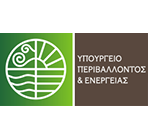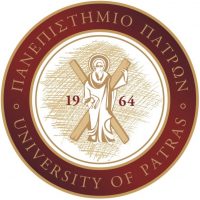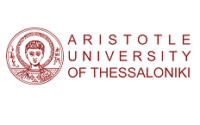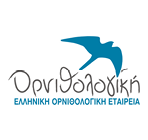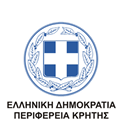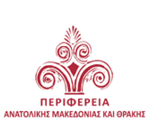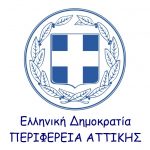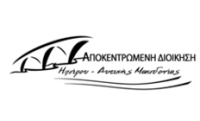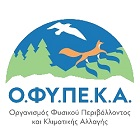Actions:
- Formulation, legal adoption and implementation of Action Plans (APs) for species/habitats of Community Interest
- Mapping and Assessment of Ecosystem Services (MAES) of the Greek Natura 2000 network
- Development of web-based interactive/cutting edge GIS tools for effective management of the Natura 2000 network by competent authorities and the general public
- Mapping and identification of all stakeholders involved, and their engagement and capacity building
- Launch of a nationwide communication and dissemination campaign.
- Implementation of several Natura 2000 Management Plans (MPs) in the four (4) participating Administrative Regions of the project
- Capacity building of key stakeholders
- Pilot implementation and introduction of MAES in decision-making in selected Natura 2000 sites of the 4 Regions.
The case of Greece
Greece is fortunate to stand out for the richness of its biodiversity and, therefore, has the privilege and the responsibility to preserve its natural heritage.
(Click to see the 2015 Eurobarometer survey)
However, nature conservation hadn’t been a priority issue neither for the state nor for the citizens, for many years:
- Nature conservation legislation had often been poorly implemented and, as a result, Greece was referred to the EU Court of Justice
- 8 out of 10 Greeks (78%) have never heard of the Natura 2000 network or -even if they have- don’t know what it is.
LIFE-IP 4 NATURA is part of a new nature conservation framework in Greece. The country recently expanded its Natura 2000 network by expanding existing sites and adding new ones. Currently the Natura 2000 network in Greece covers approximately 28% of the country’s land and about 20% of its marine territory.
Moreover, the foundations for a new National Protected Areas System have been laid, in which Management Bodies will play a key role.
LIFE-IP 4 NATURA will support and complement this new framework, by filling gaps that have so far undermined the function of the Natura 2000 network in Greece. Implementation of the project will be a catalyst for the effective protection of Natura 2000 sites and biodiversity, thus enhancing their development prospects.
The project’s team
Project Administration Group
1. Ioannis Mitsopoulos, Scientific Coordinator
2. Alexandra Kavvadia, Project Manager
3. Panagiotis Tsolakidis, Financial Administration
4. Vasiliki Markantonatou, Project Secretary
Steering Committee
1. Mitsopoulos Ioannis, Dr. Forester, LIFE-IP 4 NATURA Scientific Coordinator, Ministry of Environment and Energy
2. Katerina Koutsovoulou, Dr. Biologist, Green Fund
3. George Mallinis, Associate Professor, Aristotle University of Thessaloniki
4. Panagiotis Dimopoulos, Professor, University of Patras
5. Apostolos Kyriazopoulos, Associate Professor, Democritus University of Thrace
6. Antigoni Gkoufa, Στέλεχος της Διεύθυνσης Περιβάλλοντος, Περιφέρεια Αττικής.
7. Anna Kagiampaki, Στέλεχος της Διεύθυνσης Περιβάλλοντος και Χωρικού Σχεδιασμού, Περιφέρεια Κρήτης
8. Paraskevi Chouridou, Στέλεχος της Διεύθυνσης Αναπτυξιακού Προγραμματισμού, Περιφέρεια Ανατολικής Μακεδονίας – Θράκης
9. Elpida Grigoriadou, Στέλεχος της Διεύθυνσης Υδάτων Δυτικής Μακεδονίας, Αποκεντρωμένη Διοίκηση Ηπείρου – Δυτικής Μακεδονίας
10. Theodota Nantsou, Head of Policy, WWF Greece
11. Panagiotis Kordopatis, Forester, Hellenic Ornithological Society.
Scientific Advisory Group
1. Konstantinos Aravossis, Secretary General for Environment and Water, Ministry of Environment and Energy
2. Vasilios Likousis, Research Director at Hellenic Center for Marine Research
3. Ioannis Mitsopoulos, Dr. Forester, LIFE-IP 4 NATURA Scientific Coordinator, Ministry of Environment and Energy
4. Athanasios Kallimanis, Associate Professor, Department of Biology, Aristotle University of Thessaloniki
5. Emmanouel Vasilakis, Assistant Professor, Faculty of Geology & Geo-environment, National and Kapodistrian University of Athens
6. Konstantinos Thanos, Professor, Department of Biology, National and Kapodistrian University of Athens
7. Dimitrios Bakaloudis, Associate Professor, Faculty of Forestry and Natural Environment, Aristotle University of Thessaloniki
8. Savas Kazantzidis, Senior Researcher, Hellenic Agricultural Organization “Demeter”
9. Nikolaos Karavas, Dr. Environmentalist, Ministry of Rural Development and Food
10. Petros Lymperakis, Dr. Biologist, Natural History Museum of Crete
11. Ioannis Matsinos, Professor, Department of Environment, University of the Aegean
12. Despoina Vokou, Professor, Department of Biology, Aristotle University of Thessaloniki
